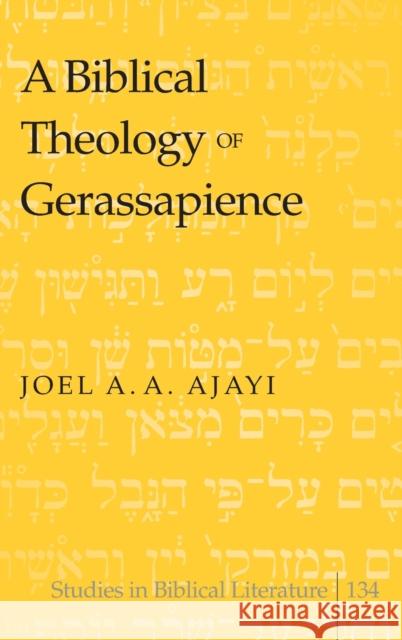A Biblical Theology of Gerassapience » książka
A Biblical Theology of Gerassapience
ISBN-13: 9781433107856 / Angielski / Twarda / 2010 / 267 str.
Ancient cultures, such as that of the Hebrews, commonly associated wisdom with advanced years. In A Biblical Theology of Gerassapience the author investigates the validity of this correlation through an eclectic approach including linguistic semantic, tradition-historical, and socio-anthropological methods to pertinent biblical and extra-biblical texts. There are significant variations in the estimation of gerassapience (or -old-age wisdom-) in each period of ancient Israel s life that is, in pre-monarchical, monarchical, and post-monarchical Israel. Throughout this study, appropriate cross-cultural parallels are drawn from the cultures of ancient Israel s neighbors and of modern societies, such as the West African Yoruba tribe.
The overall results are bi-dimensional. On the one hand, there are semantic elements of gerassapience, such as the elusiveness of -wisdom- and the mild fluidity of -old age-. Both terms have strong contextual affinity with minimal exceptions. Thus, the attribution of wisdom to old age is evident but not absolute in the Hebrew Bible (Old Testament). On the other hand, gerassapience is depicted as primarily didactic, through direct and indirect instructions and counsels of the elderly, fostering the saging fear-of-Yahweh legacies. On the whole, socio-anthropocentric tendencies of gerassapience (that is, of making old age a repertoire of wisdom) are checked by theological warrants of theosapience (Yahwistic wisdom). Therefore, in the Hebrew Bible, the fear of Yahweh is also the beginning of growing old and wise."











